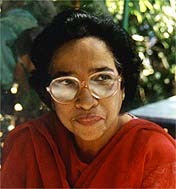Driving through Cumbria one is struck by the natural splendour of the region. Wordsworth described it as ‘the loveliest spot man has ever known.’
Kendal the principal town in the region, is the southern gateway to the Lake District. It is famous for many things especially its wool. The town’s motto is ‘pannus mitu pais’ meaning ‘wool is our bread.’ The special Kendal ‘green cloth’ is famous all over the world.
Kendal is also famous for its ancient medieval market which dates back to the 12th century. It is open for trade six days in the week. From Kendal snuff to Kendal Mint Cake to Kendal shoes, everything is available here. The town is proud of its Market Charter.
More than the museums, art galleries and castles, what fascinated me was the Quaker Tapestry exhibited at the Friends Meeting Home at Stramongate. This tapestry has 77 panels made of specially woven wool cloth. Each panel is about 25” x 21” and is embroidered with crewel work. It chronicles the history of the Quakers through 350 years. It took 4000 men, women and children from 15 countries to ‘have a hand’ in its creation.
Panel E5 highlighted the work a woman called Elizabeth Fry, who lived from 1780 – 1845. She was a staunch Quaker. The Quakers call themselves “The Religious Society of Friends.” They believe in the “Inner Light” which helps them distinguish between right and wrong. They also recognize the value of silence for religious meditation and for promoting fellowship.
As a young woman, Elizabeth Gurney Fry once visited London’s Newgate prison, and was appalled by the inhuman living conditions. In 1817, she formed an “Association for Improvement of Female Prisoners,” and was instrumental in bringing about many prison reforms. She campaigned for segregation of prisoners according to age, sex, seriousness of crime, and insisted that female supervisors should oversee female prisoners. Through her effort, educational and employment programmes were introduced in prisons. She travelled all over Europe and England, to encourage prison reforms. Prisoners were also given access to religious and secular instruction. Elizabeth said her aim was to build up self esteem and develop their skills, rather than focus on punishment. It is any wonder then, that they called her “Angel of Prisons.”
Between 1818 – 1843, when convicts including women and children were sent off to Australia, she visited every ship that set out to Botany Bay, to ensure that women and children had at least minimum requirements of space, food and medicines, until they reached their destination. Altogether there were 106 ships with a passenger list of 12,000.
Elizabeth Fry must have been a woman near to the heart of God. Loving the unlovable doesn’t come easy. It is a choice that can cost us our time, energy and even money. Yet, we have been exhorted to ‘bind up the broken hearted.’ It is our high calling. To be compassionate is to feel the pain of others. As Jack Canfield said, “You let their pain touch your heart and turn it into compassion. What a splendid way to go through life, bringing blessings to all we touch!”
Tuesday, February 26, 2008
Subscribe to:
Post Comments (Atom)







No comments:
Post a Comment